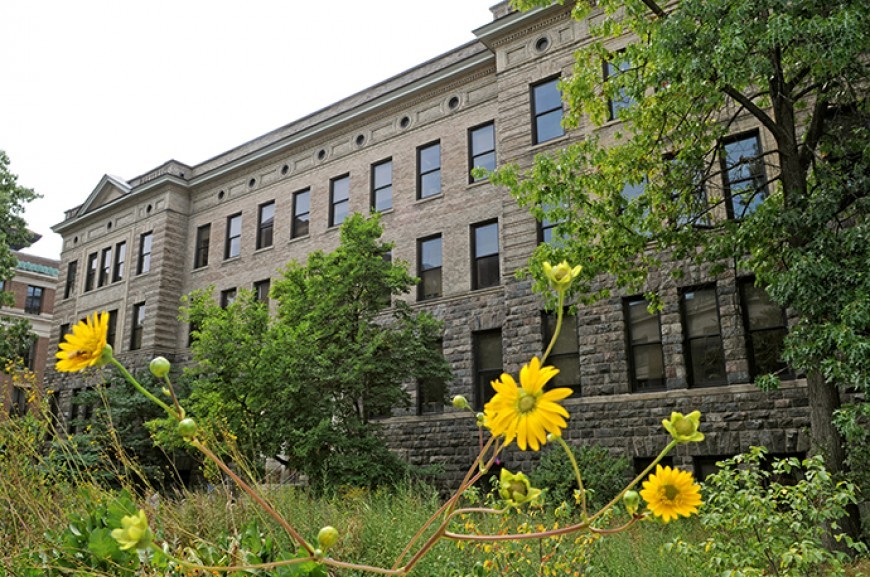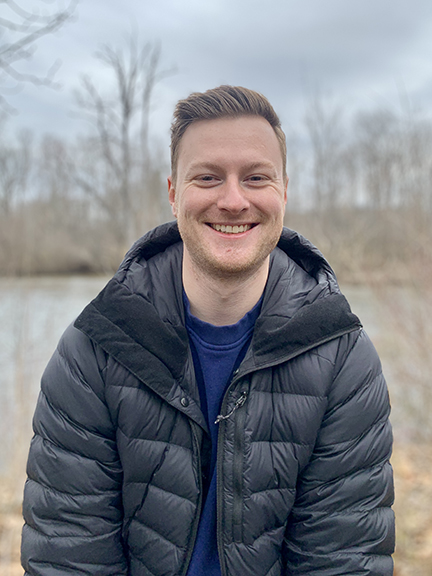
 back to all news
back to all news
Meet the future of Sustainability and Development: Josh Thompson (MS ’22)


Josh Thompson (MS ’22) has focused on the issues of climate change from a global perspective, which he developed and built upon during his time at the U-M School for Environment and Sustainability (SEAS). “I have always been interested in how other countries, other cultures, and other systems of governance are reacting to the climate change issue,” he said. This ultimately drew him to the Sustainability and Development specialization at SEAS.
“I wanted to come here because I wanted to further my studies in sustainability and environmental science and look at how solutions to that issue are being addressed with a focus on international issues and international perspectives,” said Thompson, who received his BS from Iowa State University and completed a program in international development practice at the Humphrey School of Public Affairs at the University of Minnesota.
This global perspective has influenced Thompson’s time at SEAS. He has worked closely with his advisor, Associate Professor Pam Jagger, to further his knowledge in international climate change problems and solutions. Thompson also found several classes to be particularly influential in his graduate studies, including Social Research Methods with Lecturer Avik Basu, Environmental Psychology with Associate Professor Raymond De Young, and Natural Resource Statistics with Professor Inés Ibáñez.
The SEAS experience
Thompson, who graduated from SEAS in April, said he has wholeheartedly enjoyed his time at SEAS. “It’s been unique with COVID, for sure,” he said. “But I have to give a genuine shout-out to Jennifer Taylor, assistant director of curriculum and support services, and the whole administration because they have been absolutely on top of it. I never felt lost or alone in any way.” Moreover, Thompson reflected that the SEAS community is one of his favorite aspects of his time as a graduate student here. Thompson said he “met a lot of fantastic people and made a lot of great friendships [at SEAS],” and when he thinks about his future work addressing climate change, “knowing that this is a collective effort makes me feel much better about moving forward.”
For his master’s thesis, Thompson partnered with a university in the Democratic Republic of Congo (DRC) to study solar mini grids and how small enterprises in the city of Goma are “experiencing new and improved energy from decentralized solar mini grids.” They collected data throughout Goma to compare the small enterprises connected to decentralized solar mini grids versus larger enterprises who source their energy from the national grid. “We've found pretty significant results that small enterprises are paying more for solar energy,” but they also receive higher-quality electricity and better access to electricity during power outages.
The implications of his project, Thompson said, are exciting. “It's a long road to providing reliable, high quality, electricity access” to more populations, he said, and his results “show that solar definitely has the ability to have the capacity to meet a lot of critical needs.”
Post-graduation work
After graduation, Thompson will continue his work to address climate change issues in Northern California, where he will work as an associate consultant in carbon markets at 3Degrees, a company that was “pivotal for getting solar mini grids in the DRC funded.” Thompson will focus on carbon mitigation projects in farms, landfills, enterprises, and businesses. He’ll analyze and interpret data on carbon and greenhouse gas output, and then help clients understand their data and work on carbon offsets.
Thompson said that SEAS has been integral in helping him get a job and get started on his career. He praised the Mentorship Program for helping him with interviews, cover letters, and career development, as well as his coursework, which allowed him to learn and develop deep knowledge in his field.
As Thompson heads onto his next journey, he feels equipped with the skills he needs to work against the climate crisis and is excited that others are doing the same. “The more people we can have positively engaged, finding solutions, and fighting the climate crisis, the better,” he said.

